|
The Hellenic Genocide
Quotes from historical documents and related Photos. |
||||||
CHAPTER XXIV: "In fact, Bedri Bey, the Prefect of Police at Constantinople, himself told one of my secretaries that the Turks had expelled the Greeks so successfully that they had decided to apply the same method to all the other races in the empire." CHAPTER XXIV: "The martyrdom of the Greeks, therefore, comprised two periods: that antedating the war, and that which began in the early part of 1915. The first affected chiefly the Greeks on the seacoast of Asia Minor. The second affected those living in Thrace and in the territories surrounding the Sea of Marmora, the Dardanelles, the Bosphorus, and the coast of the Black Sea. These latter, to the extent of several hundred thousand, were sent to the interior of Asia Minor." CHAPTER XXIV: "The Turks adopted almost identically the same procedure against the Greeks as that which they had adopted against the Armenians. They began by incorporating the Greeks into the Ottoman army and then transforming them into labour battalions, using them to build roads in the Caucasus and other scenes of action. These Greek soldiers, just like the Armenians, died by thousands from cold, hunger, and other privations." CHAPTER XXIV: "The same house-to-house searches for hidden weapons took place in the Greek villages, and Greek men and women were beaten and tortured just as were their fellow Armenians. The Greeks had to submit to the same forced requisitions, which amounted in their case, as in the case of the Armenians, merely to plundering on a wholesale scale." CHAPTER XXIV: "The Turks attempted to force the Greek subjects to become Mohammedans; Greek girls, just like Armenian girls, were stolen and taken to Turkish harems and Greek boys were kidnapped and placed in Moslem households." CHAPTER XXIV: "Everywhere the Greeks were gathered in groups and, under the so-called protection of Turkish gendarmes, they were transported, the larger part on foot, into the interior. Just how many were scattered in this fashion is not definitely known, the estimates varying anywhere from 200,000 up to 1,000,000." CHAPTER XXVI: "The Grand Vizier showed his attitude when the Greek Chargé d'Affaires spoke to him about the persecutions of the Greeks. Saďd Halim. said that such manifestations did the Greeks more harm than good. "We shall do with them just the opposite from what we are asked to do," said the Grand Vizier." CHAPTER XXVII: "I have already described how, in 1914, just before the European War, the Government moved not far from 100,000 Greeks from their age-long homes along the Asiatic littoral to certain islands in the Aegean. I have also said that Admiral Usedom, one of the big German naval experts in Turkey, told me that the Germans had suggested this deportation to the Turks. But the all-important point is that this idea of deporting peoples en masse is, in modern times, exclusively Germanic. Any one who reads the literature of Pan-Germany constantly meets it." CHAPTER XXVIII: "When Turkey decided on the deportation and massacre of her subject peoples, especially the Armenians and Greeks, she had signed her own economic death warrant. These were the people, as I have already said, who controlled her industries and her finances and developed her agriculture, and the material consequences of this great national crime now began to be everywhere apparent. The farms were lying uncultivated and daily thousands of peasants were dying of starvation. As the Armenians and Greeks were the largest taxpayers, their annihilation greatly reduced the state revenues, and the fact that practically all Turkish ports were blockaded had shut off customs collections."
CHAPTER III: "In February, 1915, when the Allies decided to attack the Dardanelles, the war ceased to be a "European" war for Venizelos. If Turkey was to be attacked---Turkey whose Asia Minor is largely Greek in race, sentiment, and religion---Greece could no longer remain out of the war, especially since these lands, while Greek by every ethnical standard, were also coveted by Italy." The Hellenic Genocide Quotes from historical documents and related Photos. Previous page | Initial page | Site Map | Next page (10th of 29) |
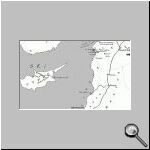
Nicosia to Aleppo.
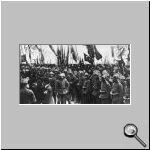
Mobilization of the Turkish army.
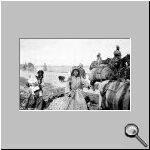
Christians being deported.
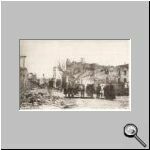
A destroyed street in Smyrna.
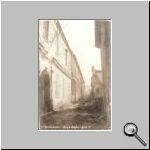
The Hellenic Hospital in Smyrna. Burnt.
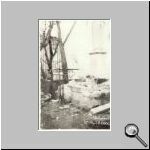
The Saint Ioannis Church in Smyrna.
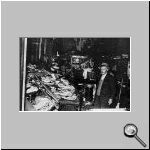
Destruction of an Hellenic shop.
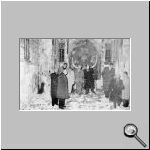
The church of the Holy Transfiguration.
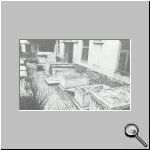
Opened, desecrated graves of Patriarchs.
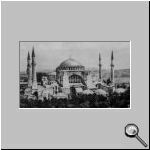
Saint Sophia: after the Turks turned it into a mosque.